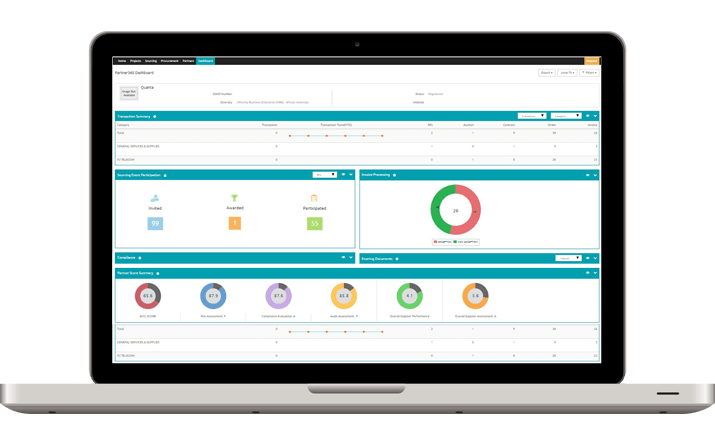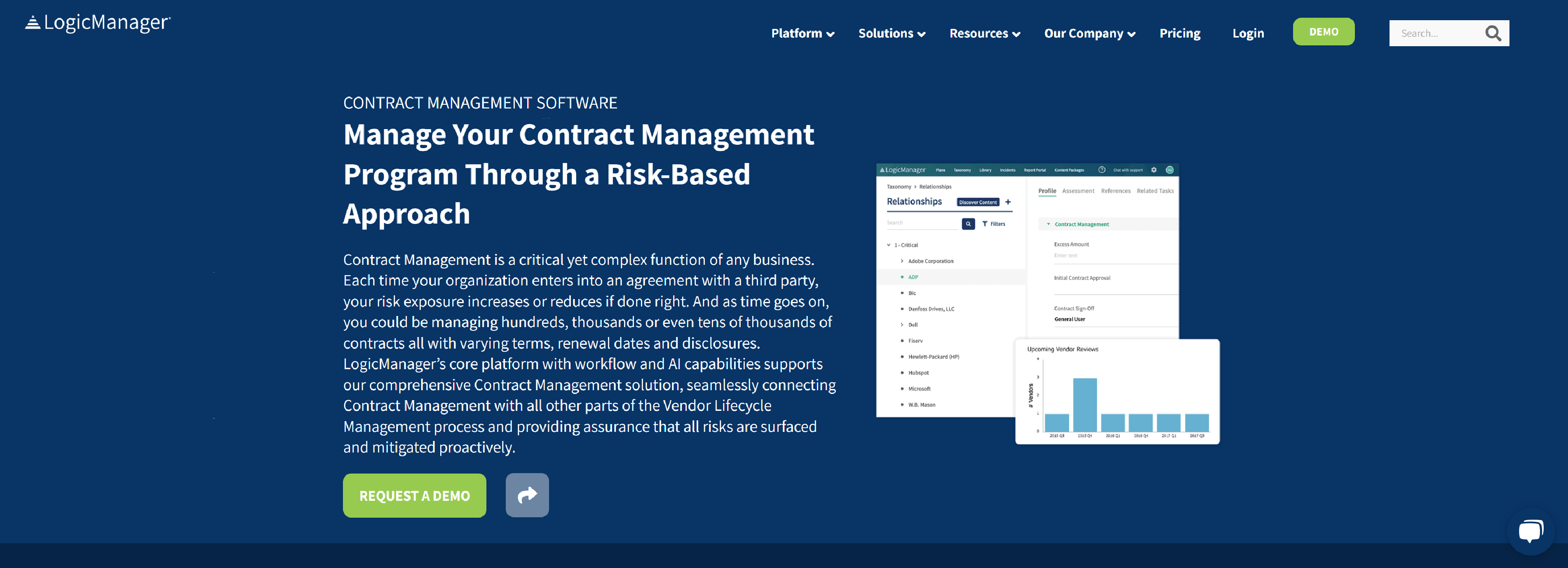Supplier contract management software revolutionizes how businesses handle contracts, offering streamlined processes and enhanced efficiency. Dive into the world of supplier contract management software and discover the key to optimizing your business operations.
Overview of Supplier Contract Management Software
Supplier contract management software is a crucial tool for businesses to efficiently handle and monitor their agreements with suppliers. By centralizing and automating contract management processes, this software helps organizations streamline operations, minimize risks, and enhance compliance.
Key Features of Supplier Contract Management Software
- Centralized Repository: Supplier contract management software provides a centralized location to store all supplier contracts, making it easy to access and manage agreements.
- Automated Alerts and Notifications: The software sends automated alerts for key contract dates, such as renewal or expiration dates, ensuring timely actions are taken.
- Compliance Tracking: It helps track compliance with contract terms and regulatory requirements, reducing the risk of penalties or legal issues.
- Search and Reporting Functionality: Users can easily search for specific contract terms or generate reports for analysis and decision-making.
- Workflow Automation: The software streamlines approval processes and workflows, improving efficiency and reducing manual errors.
Streamlining Processes with Supplier Contract Management Software
Supplier contract management software streamlines processes for businesses by eliminating manual tasks, reducing paperwork, and improving collaboration among stakeholders. By providing a centralized platform for contract management, organizations can enhance visibility, control, and efficiency in their supplier relationships. This results in cost savings, risk mitigation, and better overall contract management practices.
Selection Criteria for Supplier Contract Management Software
When choosing supplier contract management software, there are several key factors to consider to ensure you select the right solution for your business needs.
Scalability and Integration Capabilities
It is essential to consider the scalability of the software to accommodate the growth of your business. Look for a solution that can handle an increasing number of contracts and suppliers as your business expands. Additionally, integration capabilities are crucial to ensure seamless communication between the contract management software and other systems used in your organization.
Customization and Reporting Functionalities
Customization options allow you to tailor the software to meet your specific requirements and workflows. Look for software that offers flexibility in configuring fields, templates, and workflows to align with your unique contract management processes. Reporting functionalities are also important to track key metrics, monitor contract performance, and generate insights for decision-making.
Implementation Process of Supplier Contract Management Software

Implementing supplier contract management software within an organization is a crucial step towards streamlining processes and improving efficiency. The implementation process involves several key steps to ensure successful integration and adoption by the employees.
Steps Involved in Implementing Supplier Contract Management Software
- Assessment of Current Processes: Conduct a thorough evaluation of existing contract management processes to identify areas that need improvement.
- Selection of Software: Choose a supplier contract management software that aligns with the organization’s needs and goals.
- Customization and Configuration: Tailor the software to match specific requirements and workflows of the organization.
- Data Migration: Transfer existing contract data and documents to the new software system without any loss or corruption.
- Training and Onboarding: Provide comprehensive training to employees on how to use the software effectively.
- Testing and Feedback: Conduct testing phases to ensure the software functions correctly and gather feedback for further improvements.
- Go-Live and Support: Roll out the software to all users and provide ongoing support for any issues or questions.
Strategies for Training Employees on How to Use the Software Effectively
- Offer Hands-On Training: Provide interactive sessions where employees can practice using the software in a simulated environment.
- Create User Guides and Manuals: Develop comprehensive guides and manuals that employees can refer to for step-by-step instructions.
- Implement Peer-to-Peer Learning: Encourage employees to learn from each other and share best practices for using the software.
- Provide Ongoing Support: Offer continuous support and resources for employees to address any challenges or questions they may have.
Common Challenges During the Implementation Phase and How to Overcome Them
- Resistance to Change: Address resistance by clearly communicating the benefits of the software and involving employees in the decision-making process.
- Data Security Concerns: Address security concerns by implementing robust security measures and providing training on data protection best practices.
- Lack of User Adoption: Increase user adoption by providing ongoing training, support, and incentives for using the software effectively.
- Integration Issues: Overcome integration challenges by working closely with the software provider and IT team to ensure seamless integration with existing systems.
Integration with Other Systems

Integrating supplier contract management software with other systems like ERP or CRM plays a crucial role in streamlining business processes and enhancing overall efficiency.
Advantages of Seamless Data Flow
- Improved Data Accuracy: By integrating different systems, the chances of manual errors and discrepancies in data entry are significantly reduced, leading to more accurate and reliable information.
- Enhanced Decision-Making: Seamless data flow allows for real-time access to information across various departments, enabling quicker and more informed decision-making processes.
- Increased Productivity: With integration, employees can access relevant data from multiple systems without the need for manual data entry or switching between different platforms, saving time and boosting productivity.
Examples of Enhanced Operations
-
Integration between supplier contract management software and ERP system ensures that procurement data is automatically updated in real-time, helping in better inventory management and forecasting.
-
Linking supplier contract management software with CRM system enables seamless communication with vendors and suppliers, resulting in improved relationship management and timely resolution of issues.
-
Integration with financial systems allows for accurate tracking of contract performance and payments, facilitating better financial planning and budget management.
Last Recap

In conclusion, supplier contract management software is a game-changer for businesses looking to boost productivity and streamline operations. Embrace the power of technology in managing your supplier contracts effectively.
Quick FAQs
What are the benefits of using supplier contract management software?
Supplier contract management software helps businesses streamline processes, improve efficiency, and ensure compliance with contract terms.
How do you choose the right supplier contract management software?
Consider factors like scalability, integration capabilities, customization options, and reporting functionalities when selecting the software.
What steps are involved in implementing supplier contract management software?
The implementation process includes planning, training employees, data migration, testing, and ongoing support.
Why is integration with other systems important for supplier contract management software?
Integrating with systems like ERP or CRM ensures seamless data flow, enhances operational efficiency, and improves decision-making.
